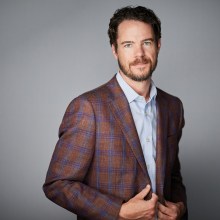
‘The most dangerous product in human history’: Could the US ban smoking?
By Ryan Tiedgen (Reporter, Producer, Editor)
Nations have always struggled to kick cigarettes for good. Quitting outright would require either a complete ban on possession and sales, or the entire population would have to just – stop. So far, the best solution has been a patch: the slow and steady release of regulation.
Smoking causes about 480,000 deaths in the U.S. each year, or four times as many as all drug overdoses combined. Those deaths are preventable, so… why not prevent them?
It’s not like car accidents, where one could argue the automobile’s benefits to society outweigh the overall costs (autos cause one-tenth the casualties as smoking). Cigarettes don’t have that kind of utility.
Dr. Ken Warner has 45 years of experience in tobacco policy and harm reduction. Professor Emeritus and Dean Emeritus of the University of Michigan’s School of Public Health, he’s written hundreds of publications and served on the original board of directors of the American Legacy Foundation, which later became the Truth Initiative and produced award-winning anti-smoking ads. He was also the World Bank’s representative on the international WHO Framework Convention on Tobacco Control, an international health treaty signed by more than 100 countries (but not the U.S.).
Straight Arrow News asked Dr. Warner if the United States, in consideration of such a high death rate, could ever ban smoking.
“The first thing you have to realize is that no country in the world has successfully banned cigarettes,” he replied, before adding, “The Kingdom of Bhutan has come close.”
Bhutan’s approach to prohibit tobacco lasted 16 years. A 2004 all-sales ban lead to a 2010 comprehensive ban. The latter resulted, mostly, in a higher prison population. Tobacco use remained steady throughout.
“In the 1600s, Sultan Myrad IV, of what is essentially now Turkey, prohibited all forms of smoking tobacco, and made it punishable by death,” Warner added. “He personally, in disguise, would walk around the streets and find people smoking and he would kill them on the spot. But that didn’t get people to quit smoking, which is itself pretty telling. This is powerful behavior.”
Cold turkey, indeed. Yet, in a world where nary a cigarette ban has survived long-term, New Zealand and Mexico may soon challenge that history.
“We have more regulation in this country on the safety of the sale of a sandwich than a cigarette,” New Zealand Associate Health Minister Ayesha Verrall stated in a public hearing for then-newly-proposed tobacco laws.
The island nation has changed that. Its new policies, now enacted, include a rising age limit. This will lead to a total ban on smokes down the road, because eventually no one alive will be able to buy them. In 2023, the minimum age to buy tobacco products is 15. In 2123, the minimum age will be 115.
Mexico, for its part, made smoking illegal in virtually all public spaces – indoor and outdoor – amounting to some of the strictest policies in the world.
What stops the U.S. from passing similar legislation?
“There are six southeastern states called the ‘tobacco states,’” Dr. Warner explained. “For decades, if you wanted to get anything done in the Senate, you had to make sure you had the tobacco bloc states with you, which meant in turn, that you couldn’t do anything against the tobacco.”
(The six states include North Carolina, Kentucky, Virginia, Tennessee, South Carolina and Georgia.)
At the local level, 15 states abolished cigarette sales in the 1890s, but according to the National Library of Medicine, “those laws all disappeared from industry pressure and the lure of tax revenues.”
In 1964, the surgeon general released its Earth-shattering report “Smoking and Health.” This report stated officially that smoking causes cancer and “contributes significantly to the overall death rate.” A well-established tobacco industry would not go quietly.
Warner was the senior scientific editor of the 25th anniversary surgeon general’s report in 1989 and contributed to the 50th anniversary report, as well as several in between.
Talk of smoking bans leads to philosophical concerns, as well, like the right to privacy and personal autonomy, even at the risk of one’s health and well-being.
In Warner’s words, “It’s largely a self-affecting behavior. Not exclusively, but there are people who philosophically are opposed to bans on anything that is largely self-affecting.”
The U.S. has experience with prohibition laws, of course, and that didn’t go well. As with Bhutan, a black market and the organized crime to serve it created a situation where the remedy was worse than the disease. In both cases, the laws were repealed.
Between the interests of profit, privacy and public health, harm-reduction has become the more practical approach. The world held its breath when Ireland banished all smoking from inside the workplace in 2004 and made it look easy. Many countries and states followed suit, and many deaths have been avoided.
Back in the U.S., Congress passed, and President Obama signed, the Family Smoking Prevention and Tobacco Control Act in 2009. This legislation gave the FDA the authority and responsibility to regulate tobacco products.
“It had a lot of quirks in it,” Warner explainer, “and a lot of people who were critical of it, even calling it the ‘Marlboro Protection Act’, because they feel it was set up to protect cigarettes.”
The biggest ‘quirk’ was that any tobacco product on the market as of 2007 was grandfathered and essentially cannot be removed. The FDA, whose mission is to protect the public health, is forced to leave what Warner calls “the most dangerous product in human history” on the shelves.
Warner recited the statistics from memory: “Cigarette smoke contains 7,000+ chemicals. Scores of them are known to be toxic to human beings. There are 70 known carcinogens, causes of cancer, included in cigarette smoke. It’s the single most dangerous product in human history and has killed far more people than any other product.”
Even so, as of 2009, prohibition of cigarettes in this country is, for all intents and purposes, off the table. Even regulation at the federal level can seem futile.
“They have to go through an incredible bureaucratic review process. And if they do manage to get something to the state where they’re going to announce that they’re planning to adopt a policy or regulation, all of a sudden there’s a flood of lawsuits from the tobacco industry,” Warner explained.
That can sometimes delay even the smallest action on federal tobacco policy for years. Graphic warning labels, common among many other countries’ harm reduction efforts, were intended to be placed on packs here in 2012. 10 years later, they’re still in the drawer.
“There are 90 to 100 countries around the world that have these kinds of labels, so we’re coming to this very, very late,” Warner told Straight Arrow News.
Since the 1964 surgeon general’s report, smoking has been on the decline — down 68% across the board. But according to Dr. Warner, the popularity of vaping and e-cigarettes has complicated the issue.
“I’ve been working in this field for 45 years, and this is one of the most interesting periods of history with regard to nicotine and tobacco,” Warner said. “And it’s also one of the most divisive, because the e-cigarette issue has completely divided the tobacco control community into: the mainstream of public health, which is focusing almost exclusively on the risk to kids (of vaping), and on the other side the harm reduction community who sees vaping as a way out of smoking for a significant subset of smokers.”
For better or worse, fully prohibiting cigarettes is simply not in America’s future. But, as Warner points out, the trends point to a demographic shift.
“It’s no longer the physician, or the lawyer, or the engineer,” he said. “Now it’s people from lower socioeconomic classes. It is minority groups, disadvantaged groups. It is people suffering from mental health problems or other addictions. And we’ve kind of written them off. We’ve kind of forgotten about them, which is a public health tragedy.”
Straight to your inbox.
By entering your email, you agree to the Terms & Conditions and acknowledge the Privacy Policy.
MOST POPULAR
-
 Getty Images
Getty Images
DHS to revoke legal status of 532,000 ‘humanitarian parole’ migrants
Read10 hrs ago -
 Getty Images
Getty Images
California could drop gas tax for different model
ReadYesterday -
 Getty Images
Getty Images
Legal fight over Social Security info spurs talk of missing payments
ReadFriday -
 Apple TV+
Apple TV+
‘Severance’ season 3 official as Apple TV+ faces streaming losses
Watch 2:16Friday






